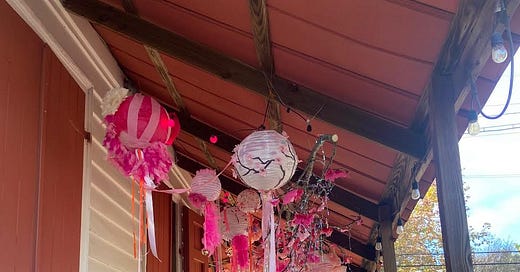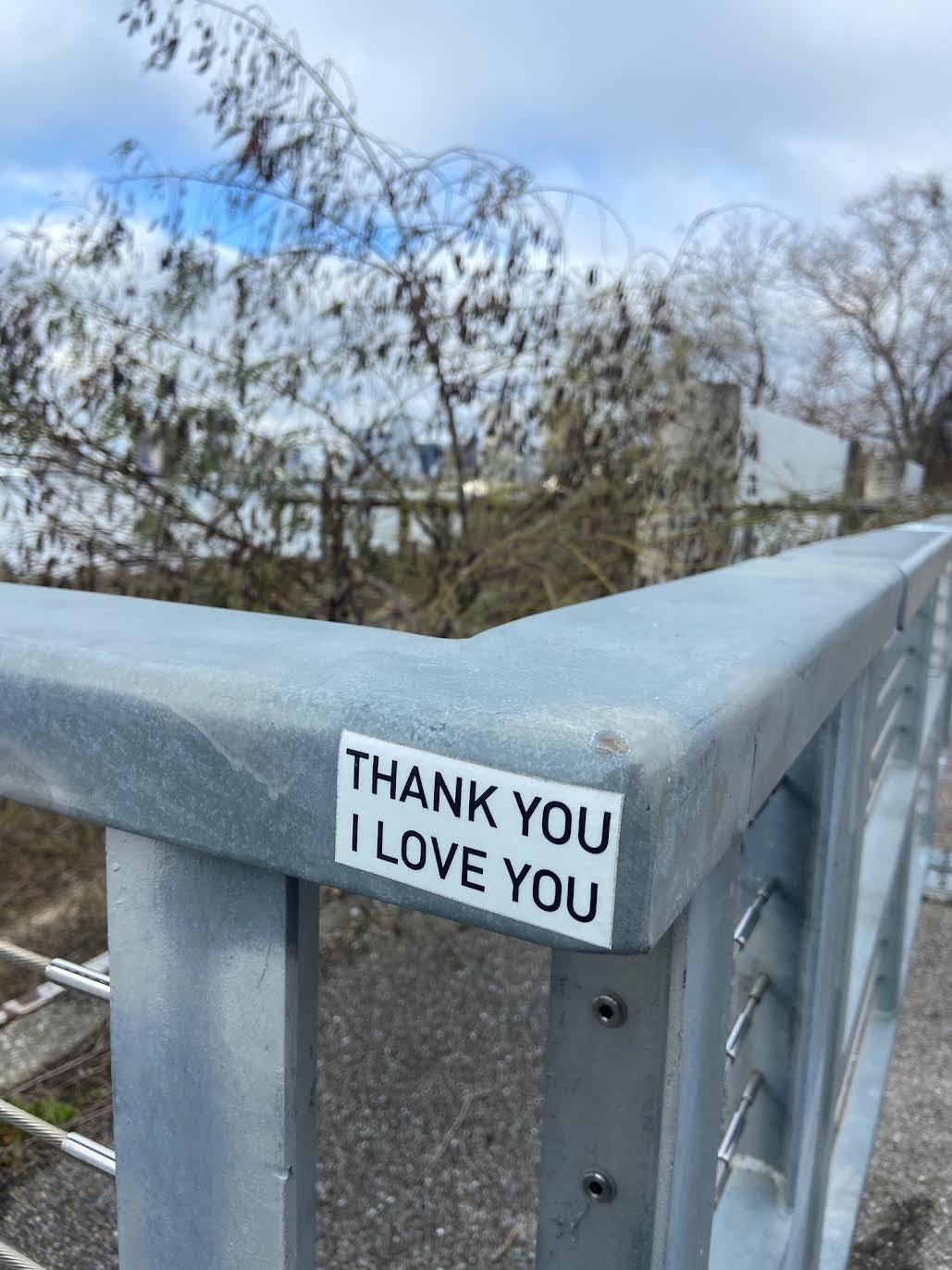Hi friends.
I am fully swept up in this book launch (you can still pre-order here!) and have a mush brain right now where I can only just focus on The Book. In the mornings when I wake up I write in my little journal about my intentions for this book and this tour and how I want to connect with people and what good things I hope this book will accomplish and then I answer a bunch of emails and that’s it kids, that’s what my brain is good for right now. I wander around in a fog otherwise. The other day I actually put on a jacket inside out and wore it for several hours in public before I even noticed. My brain is toast.
So I was worried I would forget about this moment that happened while I was finishing the copy edits for my novel. And I definitely wanted to tell you about it, because I felt like learned something, or re-learned something. Because this newsletter is about process as much as it is about anything else. And if I write it down and tell you about it then it feels more real to me.
Over the holidays, I worked on my copy edits, finalizing the text the day after Christmas. On that last day I learned I had to make some changes that were not major but were unexpected nonetheless. It was a moment when I thought I should be done already. God, I’d done so much research and done so many drafts! But something in me told me I had a few more questions to ask. And I think it’s important to remain open to feedback with your work at all stages.
In my novel, there is a character who is an electronic music composer. I am obviously not one myself, but I have known many musicians in my life (that’s what she said) and I’d like to think I have a general understanding of how they spend their time, what they think about their art, how they consider the art of their peers, and what their process is. But then again what the fuck do I know? Like we think we know things, and we do. But also: we don’t know a lot.
So, duh, the real power is knowing what you don’t know. And thus it is good to have early (or in this case, late) readers who are more educated than you are on a topic. It is sometimes painful to get called out on your mistakes, but I’d much rather get called out in the edits stage than when the book is bound in covers and sitting on a shelf in a shop.
And I kept looking at this handful of moments in this character’s life and my gut was saying: I just don’t think you have this quite right yet.
I have a musician/producer friend here in New Orleans who studied composition, and I asked him to read a few specific sections featuring this character. A few sections were about her making and thinking about her own work, and another one was about attending a performance of another musician. My friend made a few suggestions on recording equipment she might own and a programming language he thought she would use, and he also offered some thoughts on how to describe the way a piece of music sounded.
I had also put out a call for help on social media and off that I made a new friend who is a composer and also an academic. I asked him to read the chapters, too, and he helped me fine tune some of the earlier edits from my New Orleans friend. He also clarified some nuances between using “noises” versus “sounds” which was extremely fascinating, and that note ended up impacting a couple of sentences throughout the book.
The suggestions from both of them were offered to me because they wanted to help me but also, I think, to honor this fictional woman’s craft, which is their craft, too. These two generous people made sure I was not just dumping words I might have found on the internet into her mouth. I am so grateful to them.
I felt a little panicky the day this was happening, even though I was in good hands. I wanted to do this right. Also I asked myself: why couldn’t I have done this months ago? But I suppose I didn’t know the right questions to ask yet. I hadn’t quite isolated the specific moments in this character’s life that needed to be examined. Only when all of the other screws in the book were tightened perfectly tight, could I see which areas were still a little too loose. The right answers (and questions) hopefully show up when you need them. Even if it’s sometimes at the last second.
People always want to know how you know when you’re done with a book or a story or a poem or a project or whatever it is you’re writing, and I have to say, this was how I knew. When I knew what questions were left to ask. And when the musicians answered them.
I hope you have a peaceful weekend.
Jami
p.s. In honor of the commencement of Carnival season this week, the donation is going to Backstreet Cultural Museum.
You are reading Craft Talk, the home of #1000wordsofsummer and also a weekly newsletter about writing from Jami Attenberg. I’m also on twitter and instagram.






I appreciated this post from @jamiattenberg, about making sure a story is as right and true as you can get it, even at the very end when you think you're done. I just ran into this myself with my own about-to-be-published novel. It takes place on Bonaire, one of the Netherland Antilles islands, and I did my research and visited appropriately for the book (long ago) but I missed something that a friend, reading an advance copy while she was in the hospital, caught. Unbeknownst to me, she used to live on Aruba, the island next to Bonaire, and she said I got something really wrong--you can't see the coast of Venezuela from the islands. There are four mentions of that in the novel, very very minor, and at first I told myself, It's at final galley stage about to go to the printer, forget it. But it bothered me and I finally sheepishly emailed my editor, gave her the four corrections, and we were able to sneak them in under the wire. Like you, I felt so much better having done that. Because a book has a long life, you know. It'll be around for years and I want it to be as right as I can get it. Thanks for speaking to the meaning of this, even at final stages.
I appreciate that even a published author can struggle with the thing I struggle with: when is it "right" and when does my novel need more edits, more as you call it, "tightening of the screws." You have so many readers of your drafts. I realize that is something I need to do, find readers to give me feedback. Thank you Jami.